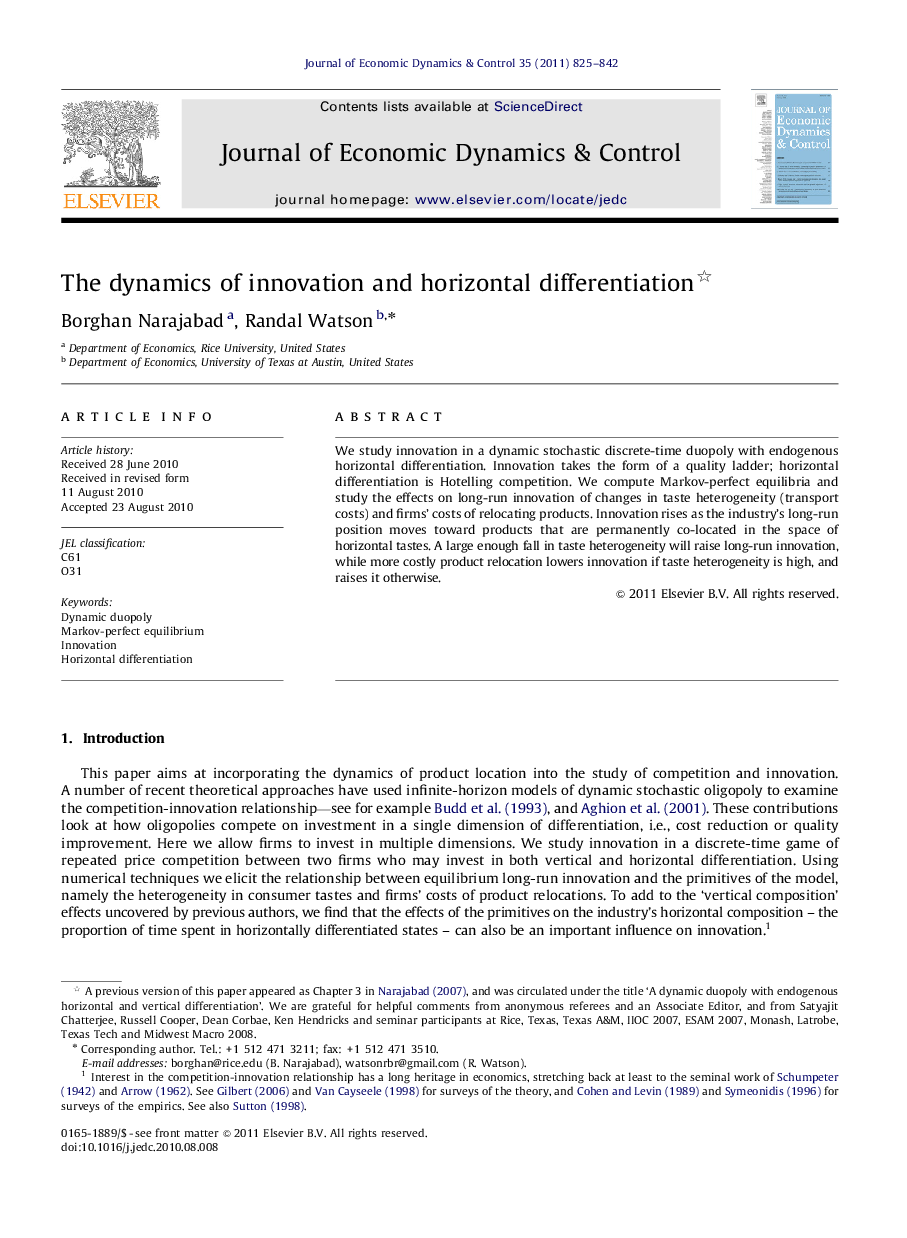| Article ID | Journal | Published Year | Pages | File Type |
|---|---|---|---|---|
| 5099494 | Journal of Economic Dynamics and Control | 2011 | 18 Pages |
Abstract
We study innovation in a dynamic stochastic discrete-time duopoly with endogenous horizontal differentiation. Innovation takes the form of a quality ladder; horizontal differentiation is Hotelling competition. We compute Markov-perfect equilibria and study the effects on long-run innovation of changes in taste heterogeneity (transport costs) and firms' costs of relocating products. Innovation rises as the industry's long-run position moves toward products that are permanently co-located in the space of horizontal tastes. A large enough fall in taste heterogeneity will raise long-run innovation, while more costly product relocation lowers innovation if taste heterogeneity is high, and raises it otherwise.
Related Topics
Physical Sciences and Engineering
Mathematics
Control and Optimization
Authors
Borghan Narajabad, Randal Watson,
